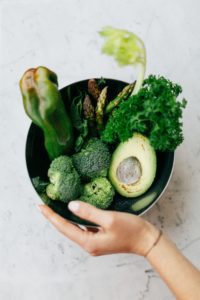IBS affects around 15% of the US population – but as many people suffer in silence or struggle to receive an official diagnosis, it’s thought this percentage could be much higher. Nearly 40% of gastroenterology visits are for IBS – and although it is not thought of as a serious illness, its effects can be debilitating and life-changing.
Over two-thirds of IBS sufferers are women – making it a women’s health issue that deserves proper care and attention. The impact of IBS can impair emotional, economic, educational and social wellbeing.
In Western medicine, there is no cure for IBS, and treatments are limited. Fortunately, the wisdom of eastern medicine has a number of supportive strategies for people struggling with the symptoms of IBS.
What is IBS?
Irritable Bowel Syndrome is a digestive disorder that causes the intestine to contract and spasm, resulting in pain and digestive issues. It is described as chronic, as it tends to affect people long-term and comes and goes, often with periods of stress or illness. Symptoms of IBS include stomach cramps and pain, diarrhea, constipation, bloating and altered bowel habits – and can range from mild to severe.
There are two types of IBS – IBS-C (IBS with Constipation) and IBS-D (IBS with Diarrhea). Even within these two variations, individuals experience different symptoms – or a combination of both.
 What causes IBS?
What causes IBS?
The exact causes of IBS are unknown – and vary from person to person. Leading gastroenterologists have determined that many people suffering from IBS also tend to have high-stress levels, linking the disorder with anxiety and depression. Sadly this leaves many IBS sufferers stuck in a vicious cycle. As the illness itself causes so much stress, it becomes a trigger that makes symptoms worse.
How can I naturally soothe IBS?
Although IBS can be frustrating and debilitating, the good news is that there are a number of natural treatments that have shown positive results in many people. What is difficult about IBS is the individuality of it – everyone experiences it differently, so each person responds differently to a treatment. What works for one person may not work so well for another.
The following advice has been compiled to offer general support to anyone suffering from IBS – helping you to take the first step towards a healthier relationship with your gut. People living with IBS often feel helpless and frustrated, and advice can be confusing and conflicting. That’s why looking inwards at your own personal situation is the best place to start. Understanding your gut better and the role it plays in not only digestive health but overall health can help you to combat IBS symptoms. It begins with just two simple steps towards better gut health…
1. Understanding the role of diet and the role microbiome plays with the digestive system itself
The first place most people look when hoping to combat IBS is their diet – and actually, this is a good place to start. Contemporary Western diets do very little to support good gut health, as they’re often heavy on processed foods, refined foods, sugars, gluten, meat and dairy. There are certified treatment plans for IBS, such as the low-FODMAP diet, which involves cutting out difficult to digest food items such as gluten, cruciferous vegetables, artificial sweeteners and dried fruits. This works for some, but not for everyone.
Most allopathic and holistic practitioners recommend an elimination diet, which involves eating bland ‘safe’ foods and reintroducing triggers one at a time. This is done to see which foods agree with your gut and which foods can be troublesome. But this again is only a short-term diagnostic tool.
Prioritize your food intake on eating a balanced, healthy diet of foods you know you can easily digest. These foods will vary from person to person. For example – in the past, IBS sufferers were prescribed huge amounts of fiber and fiber-rich foods – but this only helped a select number of patients, while exacerbating symptoms for the rest. Try to eat mainly whole foods, removing processed and refined foods from your diet where possible and reducing meat and dairy intake.
You can also support your gut with supplements. Digestive enzymes are often forgotten when it comes to treating IBS – in favor of probiotics and prebiotics. In Chinese medicine, enzymes have been used with success for thousands of years. They help to break down food more effectively in the gut, making digestion smoother and more manageable. There are a number of different enzymes available – including amylase, pepsin and trypsin.
Lastly, it’s important to remember that it isn’t just what you eat, but how you eat that can influence the severity of symptoms. Tips to incorporate day-to-day include:
– Massage: In the evening, try a short self-massage of the stomach with warm oil. Work in a clockwise motion, use wide upwards sweeping motions and rolling portions of the stomach in both hands, pressing in with the thumbs.
– Smart water: Sip warm water throughout the day to support healthy digestion. Starting the day with warm lemon water can help to fire up the digestive system. In Ayurveda, digestion relies on fire, or agni, so drinking cold water with meals can dampen this fire and impair digestion.
– Eat according to your dosha type: Determine your dosha type (you can take our test here), then look into what types of foods are beneficial for you and which you should steer clear of, taking into account seasonal influence.
– Slow down: Sit down, slow down and savor your food. Take time to properly chew each and every mouthful. The chewing process is the start of digestion – so skipping this as you wolf down another meal on the go can make the digestive process more difficult for your gut. Try to eat without distractions such as TV or conversations, which can cause you to overeat or swallow excess air, increasing digestive discomfort.
2. Rebuilding the gut lining
Our gut’s function is supported by its lining, which has a sophisticated and intricate functionality designed to act as a barrier that can filter and absorb nutrients whilst keeping bacteria and toxins contained within the gut ready for excretion.
Proponents of the ‘leaky gut’ theory believe that IBS and related digestive disorders, along with a variety of chronic illnesses, are caused by toxins leaking into the bloodstream through a damaged gut lining, causing inflammation and disease. Although the leaky gut theory does have some evidence to back it up and many people find that methods recommended to heal leaky gut work well for them, there still isn’t enough research to conclusively prescribe this for everyone living with IBS. Despite this, even those who aren’t sold on the ‘leaky gut’ theory agree that the role the gut lining plays in our digestive health cannot be overstated.
There are several ways in Ayurveda we can help to rebuild, repair and restore the gut lining:
– Consume digestive spices and herbs: Incorporating turmeric and cumin into your daily routine, whether in supplement format or through food and drink, can help soothe an inflamed gut lining. Fennel seeds can also be chewed after meals to aid healthy digestion.
– Avoid alcohol: Alcohol aggravates an inflamed or impaired gut lining and should be avoided at all costs.
– Drink ginger tea: Ginger tea has been used for millennia to support healthy digestion and soothe nausea. Drink a cup of fresh ginger tea each day to help heal a damaged gut lining.
– Combat stress: Stress is a critical factor in the development of damaged gut lining. Various Ayurveda practices can help reduce stress, such as massage, meditation and yoga.
Our Digestive blend can support good gut health, using the wisdom of Ayurveda to soothe the stresses of a busy modern lifestyle.






